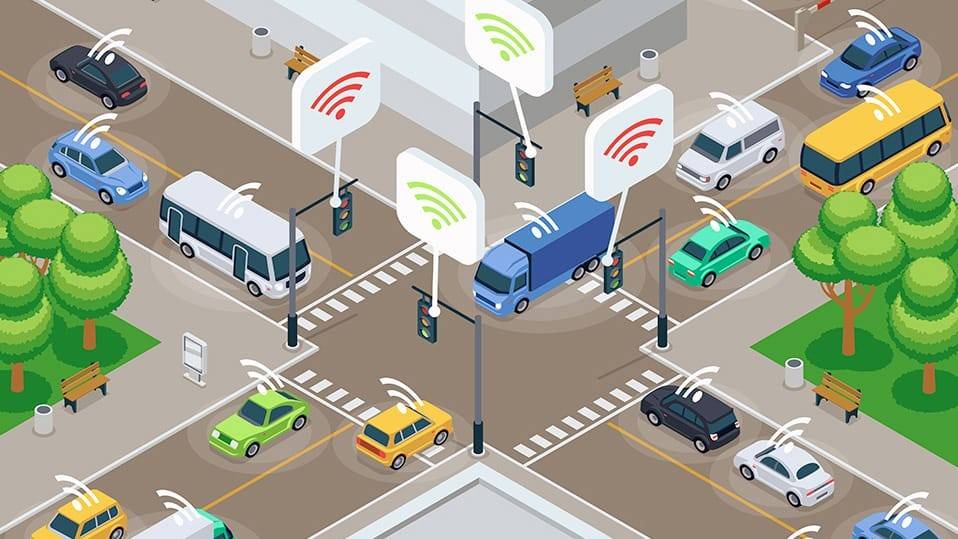
The rapid urbanization and population growth worldwide have intensified the challenges faced by metropolitan cities in managing traffic and transportation systems. In response to this demand, artificial intelligence (AI) has emerged as a revolutionary force, transforming urban mobility and addressing the strain on existing infrastructure. This blog explores the profound role of AI in traffic management, emphasizing its impact on developing sustainable and intelligent cities.
The Evolution of AI in the Automotive Industry
AI has become a game-changer in the automotive industry, enabling advancements such as driverless vehicles, advanced driver assistance systems (ADAS), and optimized manufacturing processes. From enhancing safety features to improving supply chain management, AI has accelerated the industry’s transition towards safer, connected, and sustainable transportation solutions.
Top 10 Ways AI Transforms Transportation
Smart Route Planning
AI-driven navigation systems analyze real-time traffic data to suggest optimal routes, helping drivers avoid delays and save time by accounting for accidents, road closures, and construction.
Accident Prevention
By examining past traffic data, AI systems can anticipate and prevent accidents, detecting real-time incidents and notifying authorities promptly to minimize traffic disruptions and enhance safety.
Effective Traffic Flow
AI automatically adjusts traffic signals based on real-time data, streamlining traffic and reducing congestion. Adaptive signal control systems prioritize high-traffic directions to maintain smooth traffic flow.
Parking Solutions
Real-time parking availability information is provided to drivers through AI-driven apps and systems, reducing the time spent searching for parking spots and easing traffic congestion.
Enhanced Safety
AI-driven security cameras identify potential threats to public safety, such as abrupt lane changes or running red lights, alerting law enforcement and traffic management centers for timely intervention.
Sustainable Cities
AI-powered traffic management contributes to the development of aesthetically pleasing and sustainable urban environments by easing traffic, enhancing air quality, and providing effective mobility options.
Emissions Reduction
AI encourages eco-friendly transportation choices, promotes carpooling, and streamlines traffic to reduce emissions, contributing to environmental sustainability.
Enhanced Public Transportation
AI forecasts ridership trends, optimizes public transportation routes, and improves scheduling, making public transportation networks more reliable and appealing to commuters.
Data Analytics
AI processes vast amounts of traffic data to identify patterns, trends, and areas of concern, enabling policymakers and urban planners to make informed decisions on infrastructure upgrades and transportation projects.
Integration of Autonomous Vehicles
AI is essential for the seamless integration of autonomous vehicles into current traffic systems, allowing them to perceive their surroundings, make decisions, and navigate in various driving scenarios.
Conclusion
As smart cities continue to evolve, leveraging AI in traffic management becomes essential for building safer, seamless, and efficient transportation systems. While AI offers transformative benefits, it is crucial to balance technological advancements with ethical and privacy considerations. The prudent application of AI in traffic management is a key component of creating smarter, more sustainable cities for the future.

Tech Hub Digital, a one-stop destination for complete technology-related information.

